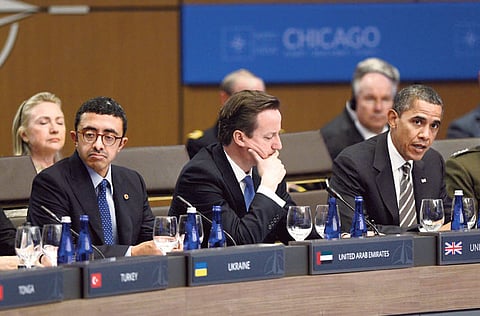Afghan troops complain about obsolete gear
Say they feel disrespected by US soldiers

Gardez, Afghanistan: They say their M16s are dust-prone antiques. Their boots fall apart after a couple of months, they complain, and many of their helmets are cracked and patched. Yet they set out on patrol.
They are the men of the Afghan National Army, the critical part of the huge machine being built to protect Afghanistan's security after the Nato alliance is gone in less than three years.
With Afghanistan topping the agenda at a gathering of Nato leaders in Chicago on Sunday and yesterday, an AP reporter and photographer travelling with Afghan army forces in Logar and Paktia provinces were hearing a mix of messages from dozens of officers and enlisted men.
The foreign forces are leaving too soon, the men say. Why then are attacks by Afghan soldiers on Nato forces increasing, killing 35 last year and 22 so far this year? Because the Afghans feel disrespected, the soldiers say. Handing out inferior equipment "is disrespectful," burning copies of Quran, however accidental, "is disrespectful" and urinating on dead bodies, even those of the Taliban, as video that emerged in January showed US troops as doing, "is disrespectful".
Costly project
Washington spent more than $20 billion (Dh73.4 billion) in 2010-2011 on training and equipping a 352,000 strong army and police force — one of the costliest projects ever undertaken by the Pentagon.
Yet the footsoldiers don't have night-vision goggles to go after the Taliban under cover of darkness.
At the rock-strewn firing range of the 203 Thunder Corps in Paktia province, Sgt. Saeed Aga recalled his M16 jamming in the middle of a fierce firefight with the Taliban, and grimaced as his young charges aired their gripes about the Vietnam-era firearm.
Sign up for the Daily Briefing
Get the latest news and updates straight to your inbox



